
Aging happens swiftly enough. Let's not put it on steroids.
This afternoon I was driving west through my small town of Eugene past one of those car repair shops which, like some churches possessed of a sense of humor, puts up some witty sign to amuse drivers. This one caught my eye:
The only thing people middle-aged people exercise is caution.
While caution, by definition, was NOT exercised by one hell of a lot of people both middle-aged and not in 2020, which is why we are not exactly brimming with Christmas cheer this year, the sign got the desired smile out of me. Hard to get a smile out of me right now, given this year. Still, I am down for a few dopamine hits, however brief.
I have no clue what happened to middle age in my life. If it did show up at all, it was breathtakingly brief, only to dump me unceremoniously to where I am now: in January, two years from seventy. I wasn't drunk or addled.
Okay, okay, addled. But geez. Seventy?
Holy shit, Batman.
Wait til you get here. The day you were awarded your very own AARP card will seem like wasted youth.
Wait. It WAS wasted youth.
I do, however, note that a great many of my Gen X friends, not to be outdone by the increasingly large community of what can only be called super geezers and super geezer wanna-bes (that would be me), have been leaping aboard the endurance race bandwagon with reckless abandon.
And, in some cases, abandoning all common sense in the process. While on the face of it, that might seem pretty laudable, it's not. You might think it's a good idea to try to bleed off your stress by running from New York to Nevada, but your body and brain might beg to differ.
I'd die by the end of the Tappan Zee Bridge. But that's just me.
Look. We are smack in the middle of silly season, driven there by so many not-so-good stories, and we are also headed straight for the Annual Commitments We All Get to Break by March 3rd, also known as New Year's Resolutions.
If you are past thirty and before sixty, you are by definition in Middle Age. This might be a really, really good time to take stock as opposed to stocking yet more toilet paper, and see where you are, may be headed, and consider your options before they get out of reach.
Before I dig into that particular ditch, let me set the stage. Much of what you and I have to work awfully, awfully hard to work off much later in life begins right now, in the muddy middle. This where the demands of work and kids typically make exercising regularly more difficult. If you have enough food, which right now is a very real issue for far too many, you might be tempted to eat too much of it. Not just because, well, Christmas and Kwanzaa and Hanukkah and all that, but because we stress eat. You can see where I'm going. But there are bigger issues with all this:
:format(jpg):extract_cover()/https%3A%2F%2Fstatic.scientificamerican.com%2Fsciam%2Fcache%2Ffile%2F2D0AA0CE-5EF3-4C1C-88578177EAF5515C_source.jpg%3Fw%3D590%26h%3D800%261D5E9AD6-737F-4CD3-83E006FA876A135A)
Middle-agers stress about beauty and youth and money and partners and sex and making it, they stress about kids and school and just. EVERYTHING. Then on top of that we had Covid and George Floyd and the election and well. Yeah. Helluva year. We are carriers, and we are dumping our stress out on everything and everyone. While we know we're stressed, I'm not terribly sure we truly understand what's happening to us, and the price we may be paying all too soon.
To support this idea, a Medium writer penned a very smart piece a while back about the connection between stress and Alzheimer's. I'd like to post it here but I forgot where I stashed the piece (Covid, you know). However I can provide this:
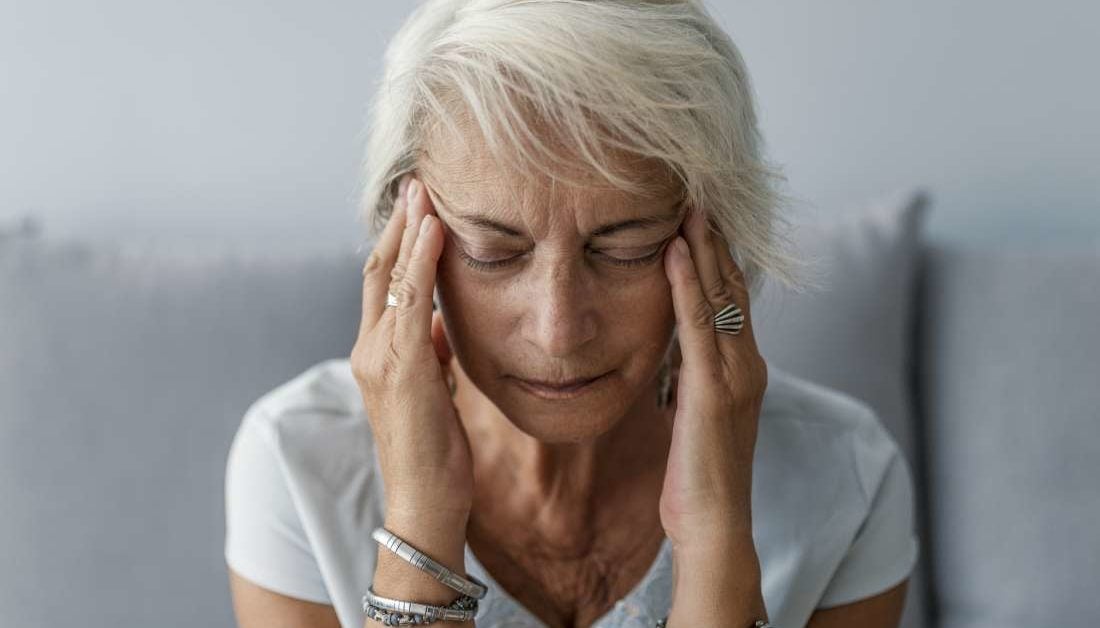
The article points out that those of us suffering from what's called vital exhaustion can have up to 25% more likelihood to develop Alzheimer's. And here I'm gonna get a lot more serious. From the article:
Vital exhaustion describes “a mental state of psychological distress” that manifests as irritability, fatigue, and a feeling of demoralization.
As the researchers explain, vital exhaustion may be a reaction to “unsolvable problems” in one’s life, especially when the person has been exposed to stressors for a prolonged period. So, vital exhaustion can be seen as a sign of psychological distress.
Previous studies have noted that vital exhaustion may raise the risk of cardiovascular disease, metabolic syndrome, premature death, and obesity, among other conditions.

Oy Geez. Ya think? 2020.
This is a year wherein you and I are subjected to these very conditions because of the pandemic, job loss, for many the increasing threats of homelessness as our Congress plays deadly tiddlywinks with our futures. Vital exhaustion describes a great many of us, if not the majority. Vital exhaustion can happen if I check headlines, scan social media, or consume really bad food (like sugar), or any combination there of, causing me to feel helpless outrage while putting my body into helpless outrage due to the refined sugar. Bear with me here.
You can quadruple those effects for communities of color, those on the front lines decimated not only by Covid but poverty and impending homelessness, or food scarcity. Folks trying to take care of us when we do not take care of them, and if anything the Administration seemed delighted that Covid might just do what the KKK didn't get done previously. But that's just my opinion.
Finding ways to reduce that stress becomes a long-term health concern.
Still, perhaps we can do something about it. Or at least build some awareness of what you and I can do in our middle decades to stave off some pretty serious consequences. Kindly, age ain't one of them. At 67 I can tell you being here ain't half bad, not having to worry about tampons (THANK YOU) the pressure to produced progeny (NO THANK YOU) and to finally let go of chasing youth (Well, okay....) is pretty good. I made it so far. But some of us may not. Here's why where we are right now is unsettling.
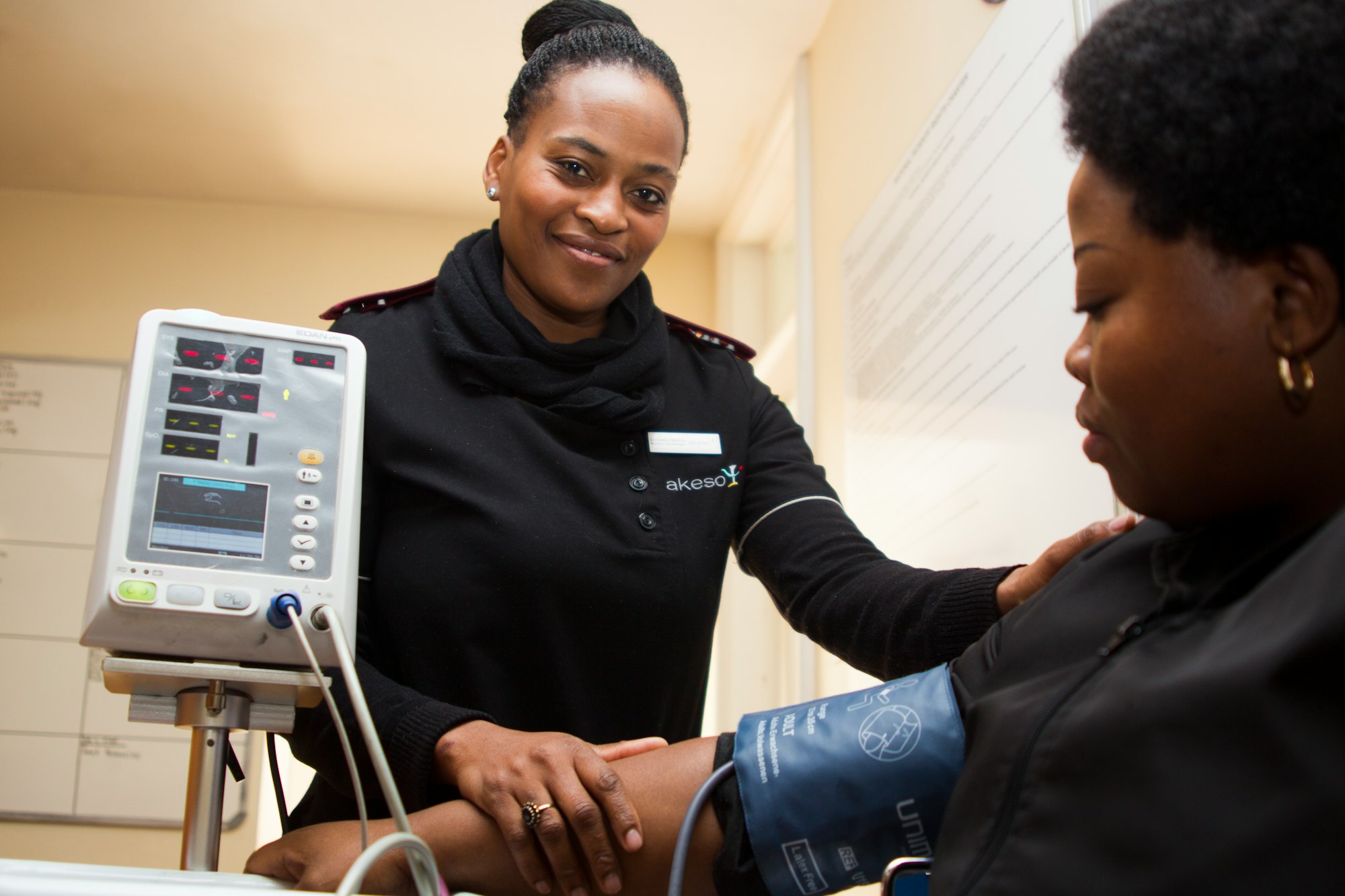
Stress on Stress on Stress
It pays to pay attention to how such stress affects us. For when you and I are between thirty and sixty, and for me that ship sailed almost a decade ago, if we allow societal stresses to regularly overwhelm us, it's not just our waistlines that suffer. We need to mind our mental states in a wholly different way. Which, as any walk around Facebook will prove, is asking a lot. We may well find ourselves sliding towards our halfway point with a bit more to carry than just extra pounds, extra debt and middle-school headaches.
If I may. It's bad enough that when we hit middle age, which some wags are beginning to think begins at sixteen, rather than engage in calmer approaches such as regular meditation and (non-competitive) yoga to provide some respite from the endless mental gerbil wheels, far too many of us take note of our expanding bellies post-pregnancy, post t00-many-beer-and-brat football parties (remember those?) and decide that we're doing to reclaim our youthful bodies (nope) and hurl ourselves into extreme exercise.
Which is highly stressful, not just on the body. When folks get compulsive about exercise routines, they become addictive patterns that can cause us great distress when we are quarantined, can't get to the classes or gyms where we are purportedly working our stresses out.
I beg to differ. Overstressing our bodies out of fear that we are losing our youth is just one more insult.
Then overstressing that we can't overstress our bodies with too much exercise because of the pandemic, well.
Then if we're at home and say, screw it, and glug sugary grog and treats because we feel sorry for ourselves (I did that too, just the treats), the body and brain are going to revolt.

Yet so many of us, stressed out of our gourds, terrified of what's happening in the world around us -with good reason, unless we are taking precautions- worried about what's next, may be feeding our fears with the very foods which set the gears in motion to create type 3 diabetes, or Alzheimer's.
And more and more of us between thirty and fifty are showing up with it.
Getting outside and running ultramarathons isn't the answer, either, if we're only doing that out of terror. The body doesn't like that kind of stress, as this article from SHAPE explains:
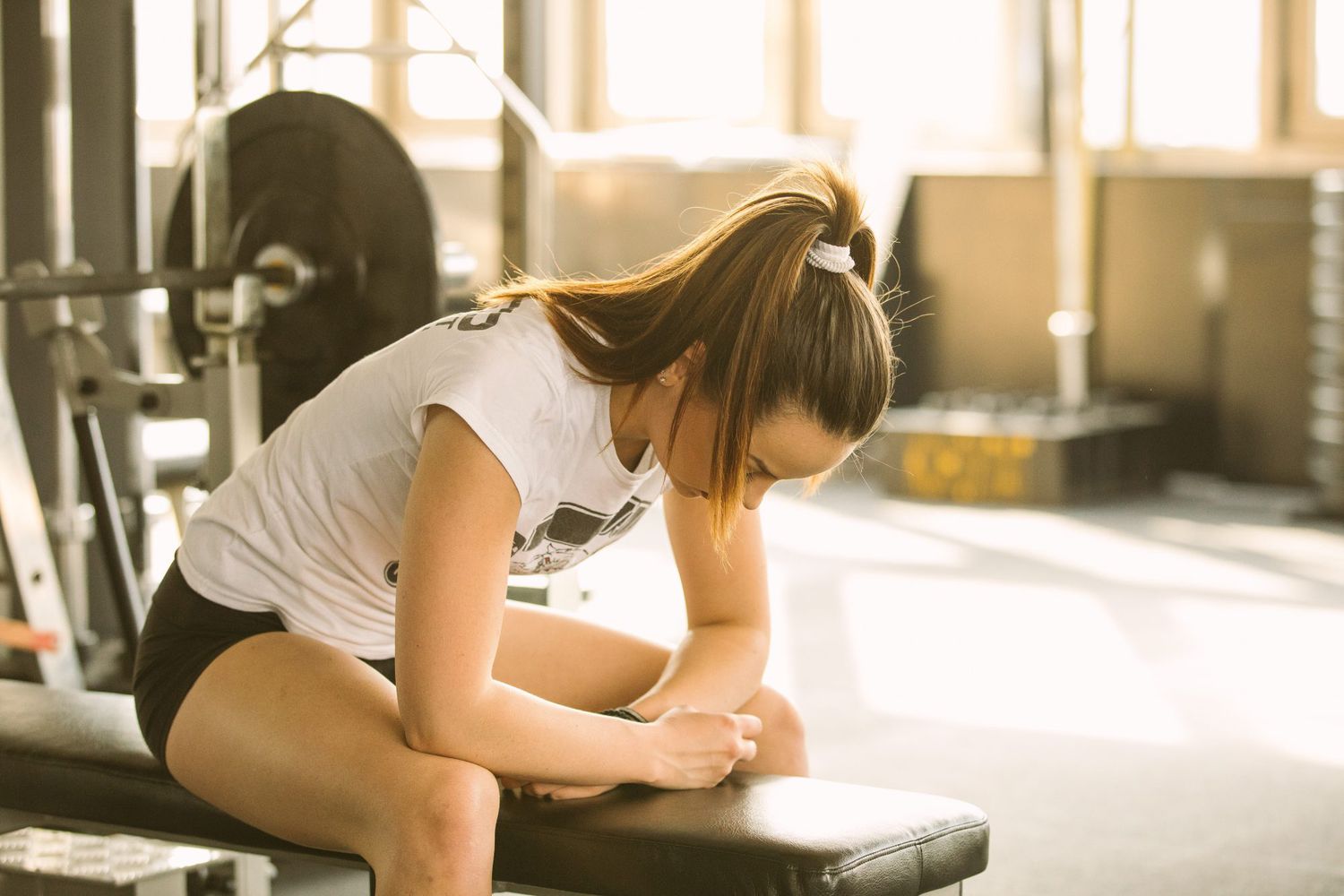
Getting outside, yes. Even standing on your balcony helps, if you can't walk safely.
From the article:
The population most at risk for cortisol imbalances are endurance exercisers, according to Dr. Christofides. That's because endurance exercise increases the amount of time your body is under physical stress, according to a study on the topic published in the journal Psychoneuroendocrinology. If you're biking or running for two to three hours a day a few times a week, that's a lot of time with elevated cortisol levels, she says. So for people who already ('already' being the key word here!) have messed up cortisol levels, due to a really stressful out-of-the-gym life or a preexisting condition, endurance training can exacerbate the issue. While this shouldn't scare you out of training for a marathon, it should encourage you to prioritize your emotional health, mental health, and recovery during training.
You see where I'm going. I'm not going to bark at you about balance, which is overused and abused. I am going to suggest, gently, it makes sense to see what you and I can control. Depending on your living conditions, access to decent food and where you live, there may well be a few things you can do to reduce the stress load and give your poor (aging, sorry) body a chance to regain some or much of its youthful bounce.
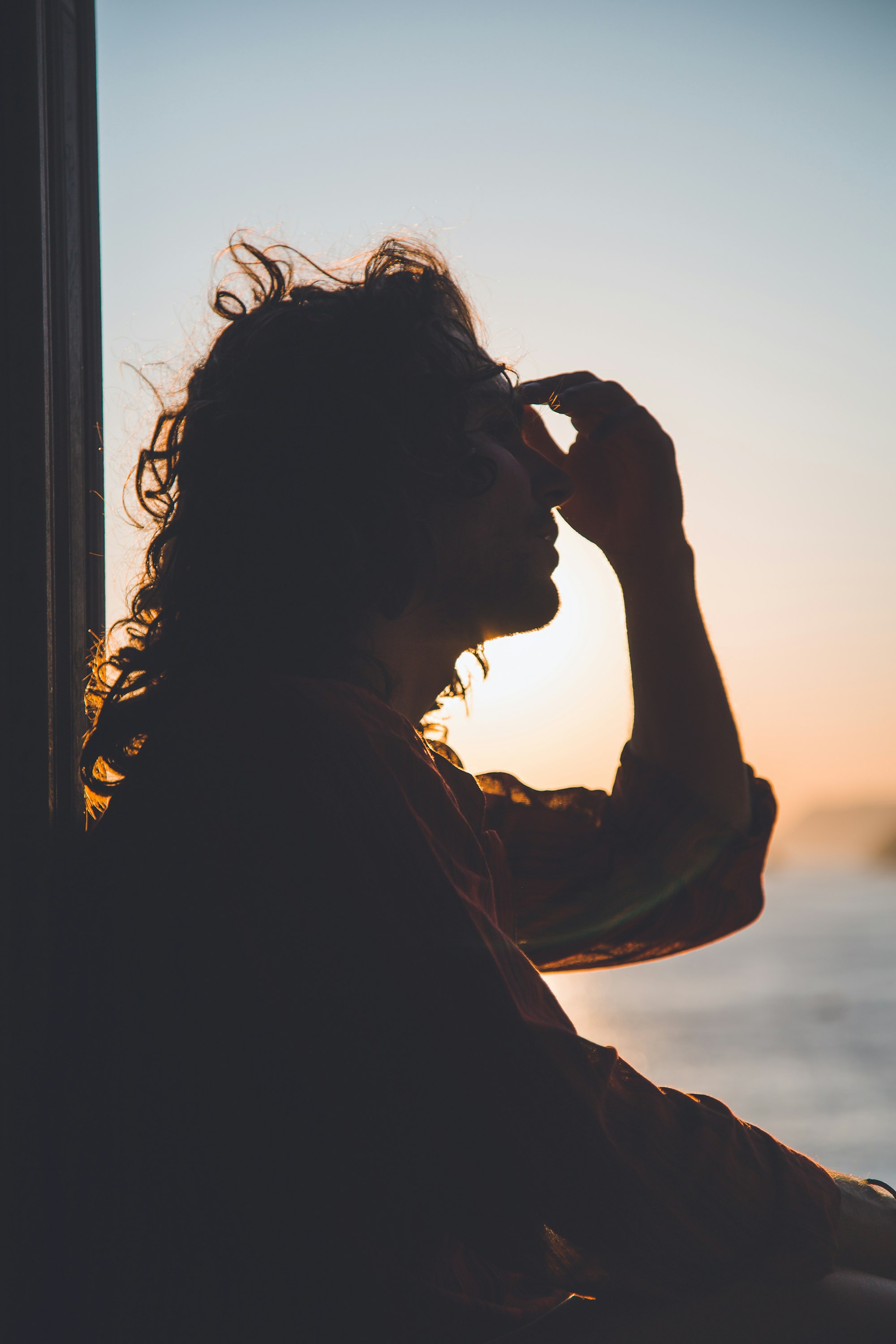
Each one of these things individually adds all kinds of stress to our bodies and minds. Collectively, it creates a bonfire. And we're it.
We are constantly insulting this fine machine we inhabit. Then when we start to bump up to fifty and beyond, it begins to complain. Most of us ride the wave of youth well into forty or thereabouts without realizing that youth, like Elvis, has left the building. For some of us, the reptilian brain convinces us that we can still eat and party like it's 1999, when all proof is to the polar opposite.
Here's what you can do.
Don't throw your laptop at me, but first things first. Don't pick up what stresses you. That way you don't have to carry it and then get rid of it later AND all the side effects. To wit:
Getting upset about getting older is a waste of energy. Getting outraged about what we can't affect or control is a waste of energy. Overstressing our bodies doing extreme endurance routines out of the terror of aging is a waste of energy. Eating too much sugar and really bad junk food because we're stressed out is like pouring gasoline on the fire we're trying to put out.
About that food that we love to gorm when things go south emotionally, please see this:

A close friend of mine, now homing in on 52, has been a lifetime bodybuilder and a serious donut addict. While exercise helps manage some of that, it's not just a case of calories in/calories out. The amount of sugar began to take its toll on his moods, his belly and his performance. The last time I saw him, his belly, once the cobblestoned envy of any Jack Reacher fan, had begun to slop over his belt. He finally dialed the donuts back to the rare treat, is working harder on more vegetables, and has leaned back some twenty pounds. He feels better all over. Especially mentally. To say nothing of having his waistline back. He looks and feels ten years younger, and his skin glows again.
I did the same thing with chocolate almonds and other goodies that became an easy but horrible snack habit in the early days of the quarantine. When I crisped up my diet, the hip bones showed back up. It wasn't just that. The quality of food paid off in feeling better equipped mentally. Choosing fruit over snickerdoodles really does make a huge difference.
De-stressing doesn't have to take hours. It can take seconds.

A few simple things:

These are quick, easily done, and as simple as taking a deep breath or correcting our increasingly horrible posture. Especially the more we sit, work at home, and slump into our recliners.
You could consider, just consider, dialing back the endurance work. A little at at time, just to give your body a break. And the rest of you, if you, as I have been in the past, obsess like a fool about one missed day or five minutes' less time on the bench. That was hard to curb. But by curbing it I got better workouts, had more fun and got in better shape.
Worth it to see if there are ways to release the pressure? Probably. Sometimes we don't realize how hard we're pushing ourselves until we stop. Ask any Covid care nurse whose N5 mask is permanently etched into her face about that. For the rest of us, a goodly bit of the stressors we are layering on ourselves. And we can put them down, bit by bit, until different, better habits slowly replace old ones.
And that really is a good away to enter the New Year: a little less burdened, ready to greet the new dawn, putting 2020 behind us, and moving in (y)our middle years with much to look forward to.
My middle years are long, long gone. But the way I figured out how to ge through the latter part of them helped get me set up for a much better....um....LATE middle age.
Just saying.
As for those New Year's Resolutions? Most of them are made by people a quarter my age. I've learned by now that I only make the ones I am likely to achieve:
- Put one foot in front of the other.
- Put the other foot in front of that foot.
- Repeat.
See? That way I don't have to give up by March 3rd.
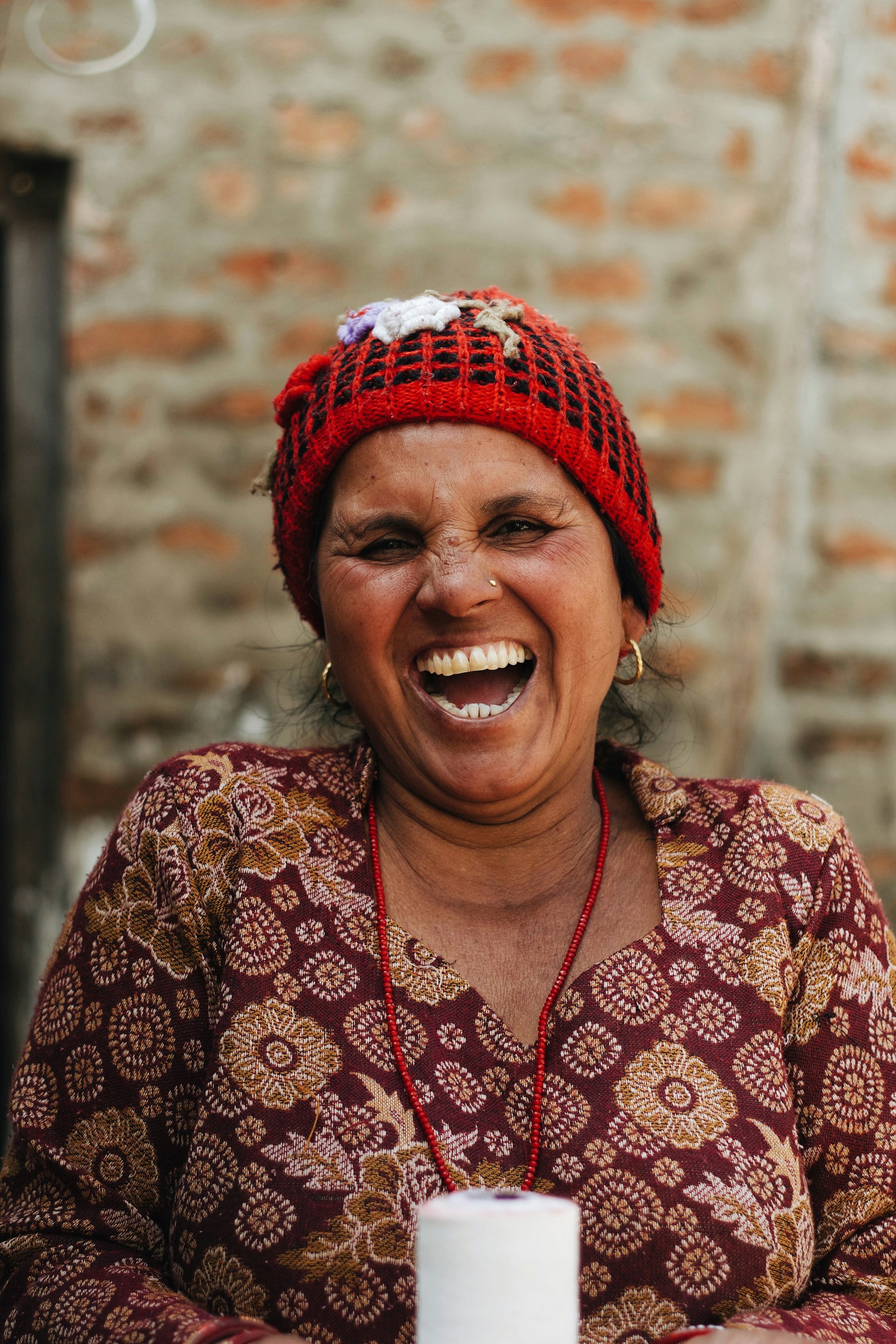




Comments powered by Talkyard.